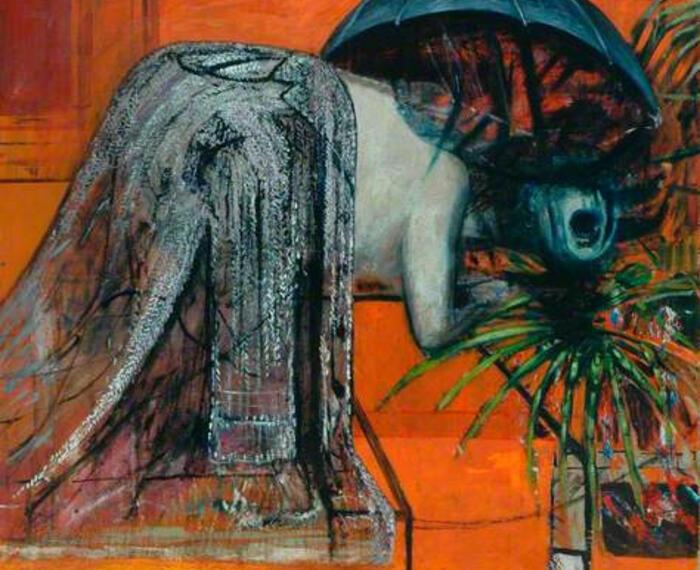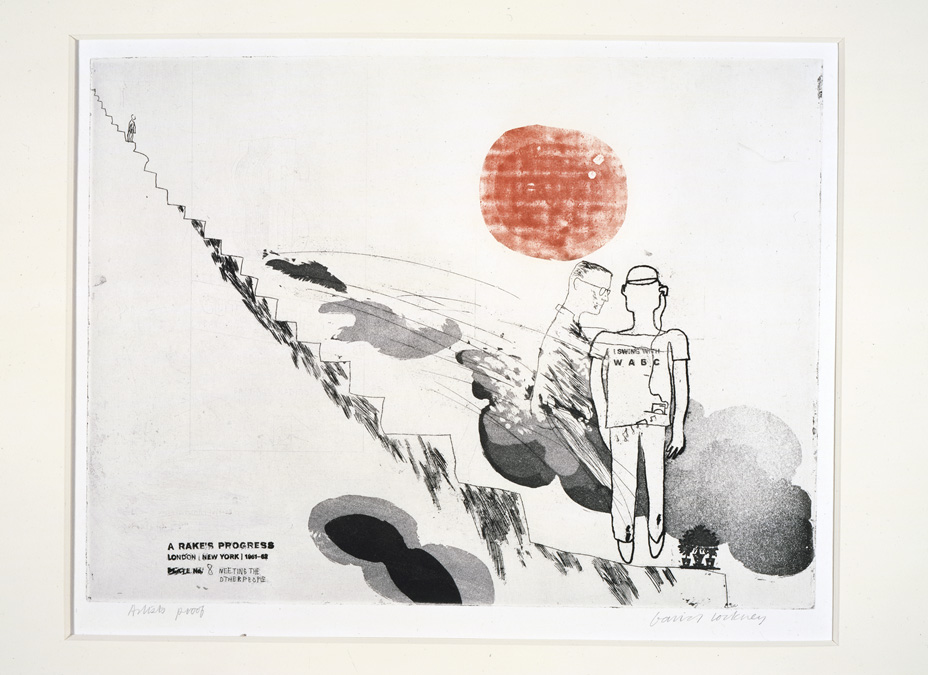A Rake’s Progress (1961-3) is a semi-autobiographical story about the young artist David Hockney, the ‘rake’, and the down and outs of his visit to New York in July 1961. The format, story and numbering system is based on William Hogarth’s 1735 set of prints of the same title. Hogarth’s 18th-century prints tell of the decline and fall of Tom Rakewell, a spendthrift son and heir of a rich merchant, who comes to London, wastes all his money on luxurious living, prostitution and gambling, and as a consequence is imprisoned in the Fleet Prison and ultimately Bedlam.
Originally Hockney’s intention was to produce 24 etchings, as a book; however, this was later reduced down to 16 etchings and partly in aquatint and printed by C. H. Welch, London in two colours. It was published as a portfolio in December 1963 by Editions Alecto Ltd, in association with the Royal College of Art where Hockney was still at student. He tells the story of arriving in New York, receiving money, dying his hair blonde, marrying an old maid, losing money, with his eventual fate not the Bedlam prison but Bedlam, the mindless masses of the ‘other people’, the only way of distinguishing the ‘rake’ from the other robotic figures is by a small arrow above his head, he has finally been subsumed into the uniform crowd where personal identity has disappeared.
The automaton-figures in plates 8 and 8A are carrying transistor radios in their pockets and are listening through earphones to the pop music played on the New York Radio station WABC. Hockney actually saw children like this in New York, and he said subsequently: ‘When I first saw them I thought they were hearing aids and was horrified at the amount of deafness among young people.’


